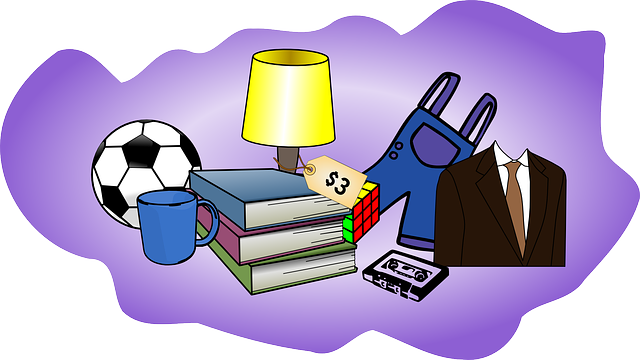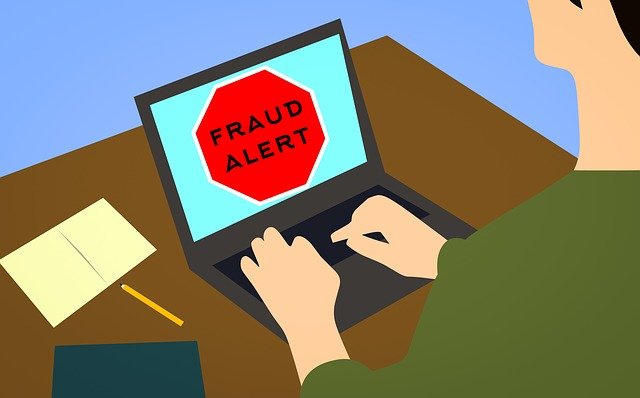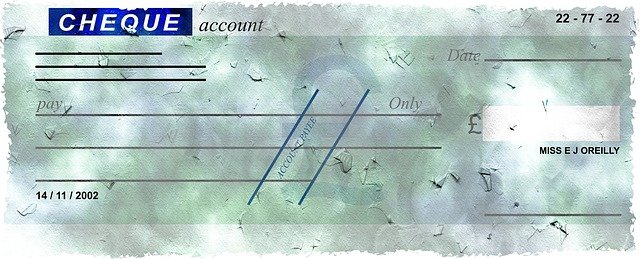This post will reveal the Craigslist scams, examples, and how not to fall victim for them…
Since the birth of the internet, the world has been blessed with many simple methods to purchase and sell items or services online, ranging from eBay to Amazon. However, Craigslist, a long-time staple of the communal virtual garage sale and ad area, may stand alone as a new type of beast.
The online classifieds site, which is used for anything from selling residences to posting resumes, has grown in popularity among people searching for a range of services and products.
However, with every online innovation designed to make people's lives simpler comes the unavoidable chance to make it millions of times worse – therefore, came Craigslist scams. But if you are aware of what to expect – they are easy to stay away from.
READ ALSO: Website Security Check: How Secure Is Your Website?
With this in mind, let’s look at some popular Craigslist scams and how you can avoid them completely:
Table of Contents
Craigslist Scam Explained
Craigslist scams can sometimes be challenging to detect and this is because the site looks pretty much complex. Whether it's a scam involving fake money services, fake commodities, or shady meet-ups, cybercriminals have certainly gotten clever in finding out how to trick people out of their money.
While Craigslist scams are not always evident, a few main scams have been used repeatedly – and may often be identified if you are extra careful and take your time examining the issue.
Examples Of Craigslist Scams
#1 Canceled or Fake Tickets
Scamming people for tickets is one of the most common types of Craigslist scams. Although scalpers, in general, can cost you a lot of money by getting tickets cheap and selling them at a high markup, you might lose everything if you're duped into purchasing fake or canceled tickets.
Several scammers have created fake tickets that appear genuine for various significant events such as concerts and sporting events.
#2 Non-Local Ads
In general, if an ad is not local, it is not a brilliant idea to pursue it. Why? Because posters of non-local advertising are unlikely to meet you in person and will sometimes need you to transfer money via an online platform.
Some ads may come from active-duty soldiers in Iraq or other remote locations, prompting online transactions that might be misleading. In addition, Craigslist states that the site is intended for local transactions in most situations, so be wary of non-local ads.
Although specific measures should be taken while meeting and executing a trade in person, some people who claim they cannot meet in person may be scammers on the platform.
#3 Fake Craigslist Site
Interestingly, some people get duped by accessing fake Craigslist sites in the first place. Scammers have previously used fake websites with similar domain names to steal internet searches from the genuine Craigslist site and convince people to believe the fake ones.
Some of these websites appear to be highly realistic and may cost you a lot of money. Keep in mind that any Craigslist site that does not include the address https://www.craigslist.org is a fraud.
#4 Scam Email from PayPal
Some fraudsters can also use PayPal to send or receive money on Craigslist. PayPal cautions users to be careful of advertisements requesting that they use the site for transactions, as many of them will never follow through – or, worse, will give you a fake PayPal email confirmation of the payment.
The site warns Craigslist users that such fake PayPal emails may contain features such as not addressing you by your full name or stating that money is being held until you complete some action.
#5 Fake Checks and Money Orders
Consider it a major red flag when a customer or seller attempts to pay you using a money order or wire transfer.
Scammers have devised complex fake packing slips or even money orders purporting to be from reputable organizations such as Western Union over the years. And they may tempt you to give the buyer your products before the fake check or money order clears.
To prevent being scammed, don't take money orders on Craigslist, and if you must use a check, make sure it clears before shipping the item purchased.
#6 Fake Escrow Service Site
While escrow services (businesses that store money for two parties in a transaction until it is completed) might offer you peace of mind when dealing with large sums of money, they can also be a sneaky technique for fraudsters to take your money.
Scammers put up fake escrow service websites and trick you into depositing money; however, you never receive what you paid for and lose your money.
To avoid being scammed by a sham escrow business, only choose reputed escrow services and recommend selecting them yourself when doing transactions.
#7 Fake Craigslist Purchase Protection
Even if an email or invoice from Craigslist appears to be legitimate, it isn't; fraudsters have repeatedly used the “Craigslist Purchase Protection” plan to defraud consumers.
Because Craigslist does not guarantee any transaction, avoid any email or text that purports to confirm or guarantee your recent purchase.
To avoid scams, manage your transactions yourself and be wary of any strange messages claiming verification or protection from Craigslist itself.
READ ALSO: What Is A Fake Antivirus? Overview And How To Spot Them
How To Avoid Craigslist Scams
While some of the most common scams seem to be easy to spot, that is not always so. And it seems that everyone, from investors and visitors to bitcoin owners, is dealing with scammers.
So, according to Craigslist's official website, some ways to avoid being scammed include not paying people you haven't met in person, never giving out financial information such as bank account numbers, dealing primarily with locals in your area to avoid shipping scams, and never sending money through Western Union.
Likewise, if you want to meet anyone locally, you can take extra measures and use online resources like Nuwber or a simple Google search to check the person before meeting them. Enter their name or address to see whether they haven’t lied about it.
While there are several additional strategies to prevent being scammed, always read every listing carefully and do not give out important information that might be used to defraud or steal from you. While Craigslist may be a valuable resource, it is best used locally.
Craigslist Caution: A Guide to Avoiding Common Scams – FAQs
Craigslist can be a great resource for finding deals or selling unwanted items. However, it's vital to be aware of potential scams to protect yourself from falling victim. Here are some FAQs to equip you with knowledge and safeguard your online transactions:
What are some common Craigslist scams?
- Fake cashier's checks or money orders: Scammers might send you fake checks or money orders that appear legitimate but ultimately bounce.
- Overpayment scams: Scammers might offer to overpay for an item and request you to send back a difference, often through gift cards or money transfers (the overpayment is fake).
- Phishing scams: Emails or messages impersonating Craigslist may be sent to steal your login credentials or personal information.
- Rental scams: Fake rental listings with very low rent prices might lure you in. Scammers may request deposits or personal information upfront before disappearing.
- Shipping scams: Scammers might agree to buy your item and offer to arrange shipping, but then send fake shipping labels or disappear with your item.
How do you tell if someone is scamming you on Craigslist?
Here are some red flags to watch out for:
- Deals that seem too good to be true: Extremely low prices or unrealistic offers are often signs of scams.
- Pressure to pay quickly or upfront: Legitimate buyers won't pressure you to pay before meeting or finalizing details.
- Requests for gift cards or money transfers: Never send gift cards or use money transfer services for Craigslist transactions.
- Unwillingness to meet in person: Legitimate buyers are usually open to meeting in person for deals involving larger sums.
- Poor communication or vague responses: Scammers might use broken English or avoid answering specific questions clearly.
What should I be careful of on Craigslist?
- Never give out personal information: This includes your address, social security number, or bank account details.
- Be wary of requests for wire transfers or money orders: These are common methods used by scammers.
- Meet in a safe, public location: Avoid meeting at your home or secluded areas. Take someone with you if possible.
- Trust your gut: If something feels off about the interaction, it probably is. Don't be afraid to walk away from a suspicious deal.
- Use Craigslist's built-in communication system: Avoid communicating outside of Craigslist's platform to minimize the risk of phishing attempts.
What is Craigslist's trustworthiness?
Craigslist itself is a platform that connects buyers and sellers. It's important to remember that Craigslist doesn't vet users or guarantee the legitimacy of listings. The onus is on you to be cautious and avoid scams.
What are the 4 most common craigslist scams?
- Overpayment scams: As mentioned earlier, these involve scammers offering to overpay for an item and requesting you to send back a difference.
- Phishing scams: Emails or messages imitating Craigslist designed to steal your login credentials or personal information.
- Fake cashier's checks/money orders: Scammers send you fraudulent checks or money orders that look real but ultimately have no value.
- Fake job postings: These might lure you in with promises of high pay but often involve upfront fees or attempts to steal personal information.
What is the purpose of fake Craigslist ads?
The purpose of fake Craigslist ads varies depending on the scam. Here are some common goals:
- Steal money: Through fake checks, overpayment scams, or requesting upfront fees for non-existent services.
- Gain personal information: For identity theft or future scams.
- Sell you something worthless: Like a fake product or service.
A Final Word…
By understanding the Craigslist scams, you can navigate Craigslist more safely. Remember, a healthy dose of skepticism, secure communication practices, and meeting in person for transactions can significantly reduce the risk of falling victim to scams.
INTERESTING READS
- Are PayPal’s Executives Looking Towards Re-Inventing the Product’s Identity?
- How To Report Online Scams In The UK [MUST READ]
- 5 Common Online Scam Tactics
- 5 Ways To Identify Phishing Or Fake Websites
- How to Detect Fake Social Media Profiles
- How To Sell A Domain Name Fast
- What Are Phishing Scams And How You Can Avoid Them?
- 5 NFT Use Cases That Will Change The World
About the Author:
Gina Lynch is a VPN expert and online privacy advocate who stands for the right to online freedom. She is highly knowledgeable in the field of cybersecurity, with years of experience in researching and writing about the topic. Gina is a strong advocate of digital privacy and strives to educate the public on the importance of keeping their data secure and private. She has become a trusted expert in the field and continues to share her knowledge and advice to help others protect their online identities.
Meet Angela Daniel, an esteemed cybersecurity expert and the Associate Editor at SecureBlitz. With a profound understanding of the digital security landscape, Angela is dedicated to sharing her wealth of knowledge with readers. Her insightful articles delve into the intricacies of cybersecurity, offering a beacon of understanding in the ever-evolving realm of online safety.
Angela's expertise is grounded in a passion for staying at the forefront of emerging threats and protective measures. Her commitment to empowering individuals and organizations with the tools and insights to safeguard their digital presence is unwavering.










